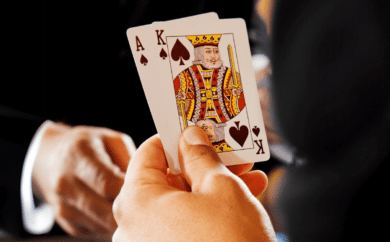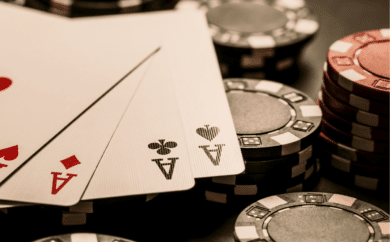Would you know how to spot symptoms of a gambling addiction for yourself or someone else? Ludomania is repetitive and uncontrollable gambling despite a person being fully aware of the harmful consequences.
This information includes an outline of 5 significant signs of gambling disorders, according to research by gambling support organisations like GamCare, BeGambleAware and the UK Gambling Commission.
“A General Manager at Lenton Lane in Nottingham was recently convicted for stealing 240,000 in stocks to fund his online gambling addiction. “ – Nottinghamshire Police, 2024
As you can see, compulsive gambling hurts individuals and can even lead to crime. Therefore, we have also included self-assessment questions that can assist you or the person you are trying to help in identifying everyday habits that can trigger gambling addictions.
Being mentally preoccupied with gambling activities
How many times do gambling activities cross your mind? Spending a lot of time planning gambling activities, researching the next bet or watching gambling content is a sign that you have Ludomania and need to cut back on betting or gambling at online casinos.
- When was the last time you searched about gambling in your browser?
- How many hours do you spend planning for the next bet?
- What is your social media algorithm (does betting and gambling make up most of the content that you watch)?
Spending more than you planned to
Unfortunately, there are many cases of gamblers in the UK spending their utility money to play casino games and place sports bets. If you usually start betting with a limit but find yourself making more deposits to gamble along the way, you may have a gambling issue.
- Have you ever considered taking a loan or using your bills to gamble online?
- Do you find yourself doubling your bets after losing a game, hoping to recover your money?
- When you receive money, is using it to gamble the first thing that comes to mind?
Have you ever disagreed or quarrelled with family, colleagues or friends about gambling?
Gambling should never replace our human-to-human connection, family and friendships. Usually, a person’s family, spouse or work-mates can notice if you have any physical or mental changes. Therefore, if gambling has been a subject of contention in your relationship, it might be time to go cold turkey.
- Do you prefer to spend time gambling instead of hanging out with people?
- Have you ever been inconvenienced, missed an event, or lost touch with a person due to gambling activity?
- Are there times when you feel the need to lie to a family member or a friend about your extent of gambling?
Feeling irritable, sad or restless when you cut down on gambling
Recent reports from the Betting and Gaming Council indicated that 35% of people trying to quit gambling feel guilty and restless about it. Furthermore, a study by the UK Mental Health Foundation demonstrates that gambling addiction is caused by the rush of dopamine, and any addict trying to reduce gambling will suffer withdrawal symptoms.
- When you stop gambling, do you experience feelings of helplessness, anxiety and depression?
- Do you ever feel guilty whenever you gamble after taking a short break?
- Have you ever experienced anger when a person says that ‘you are gambling too much?’
Considered, tried to or committed a crime to aid your gambling
1 in 3 prisoners have a severe gambling problem, according to the latest research by West Midlands Police.
“Police must consistently screen for problem gambling after arresting a person so they can be referred to the necessary gambling support organisation.” – Simoe Foster, Police and Crime Commissioner, West Midlands.
Some of the most common crimes done by people suffering from Ludomania include stealing, fraud and embezzlement. 0.7% of adults with a gambling issue have committed a crime at some point.
- Have you ever taken money from a friend, family member or relative and used it for gambling without telling them?
- Has the thought of using your employer’s funds or money from your company to fund your gambling activity ever crossed your mind?
- Do you find yourself empathising with gamblers who have committed crimes to get money for gambling?
Seek free support at gambling support organisations or get help from a mental health professional
If you or the person you are helping answered ‘Yes’ to two or more of the questions above, professional support is necessary. Whether it’s for yourself or your loved ones, you can contact organisations that offer gambling counselling and support for free, like GameCare. In severe cases, seek assistance from a mental health professional.
Call The National Gambling Helpline on 0808 8020 133 for Free. They are available 24/7.




